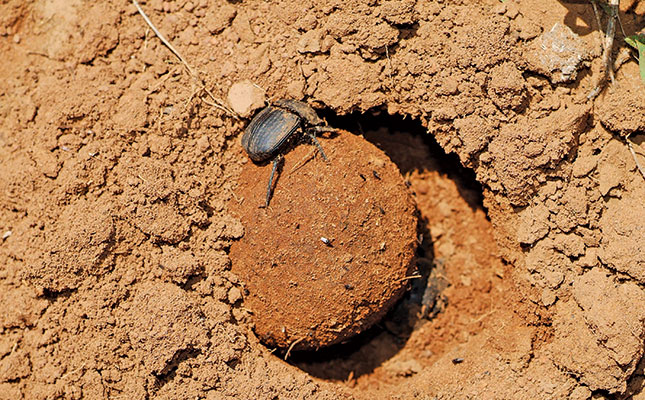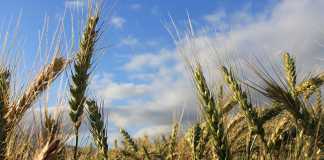
Insects should be considered partners, not pests, and South Africa’s farmers need to end the ‘chemical warfare’ against insects such as dung beetles.
This was according to Dr Astrid Jankielsohn, senior researcher of entomology at ARC-Small Grain in Bethlehem.
In an interview with Farmer’s Weekly, she said the excessive and irresponsible use of agrochemicals, as well as monoculture production systems, have resulted in a dramatic decline in insect populations globally.
It’s possible that as many as 40% of the earth’s insect species could be lost in the foreseeable future.
“In terrestrial ecosystems, butterflies and moths (Lepidoptera), bees and wasps (Hymenoptera) and dung beetles (Coleoptera: Scarabaeinae) appear to be the taxonomic groups most affected,” said Jankielsohn.
“This could have dire consequences for the functioning of ecosystems and will ultimately negatively affect food production, if left unchecked.”
Dung beetles form an integral part of any ecosystem. Dung beetle activity contributes to improved soil hydrological properties, improved soil nutrient rotation, reduced greenhouse gas emissions, reduction of pest fly populations and the suppression of human and livestock pathogens.
Dung beetles break up dung pats on the soil surface and bury them under the soil as food for their larvae.
The digging activity creates holes in the soil, increasing permeability, aeration and water infiltration. By burying dung, dung beetles move nutrient-rich organic material to where plant roots can reach it.
This instigates micro-organismal and chemical changes in the upper soil layers, which improve ammonification, nitrification, denitrification and nitrogen fixation.
By aerating and burying dung, the insects carry carbon into the soil and prevent it from being released into the atmosphere, consequently reducing greenhouse gas emissions.
“Dung beetles can bury dung before fly eggs and larvae have a chance to develop, thereby controlling populations of flies. By feeding on and breaking up fresh dung, dung beetles suppress human and livestock parasites and pathogens in the dung,” said Jankielsohn.
Many of the chemicals used to kill internal parasites of conventional livestock and pesticides on crops also kill or affect dung beetles negatively.
Limiting or stopping the use of chemicals will therefore protect dung beetle diversity. Rotational grazing and allowing fields to remain fallow three weeks between grazing periods of the same animal species will help break parasite cycles without the use of chemicals.
It is also advisable to only treat livestock actually infected by parasites rather than treating the entire herd in an effort to curb the use of agro-chemicals.












